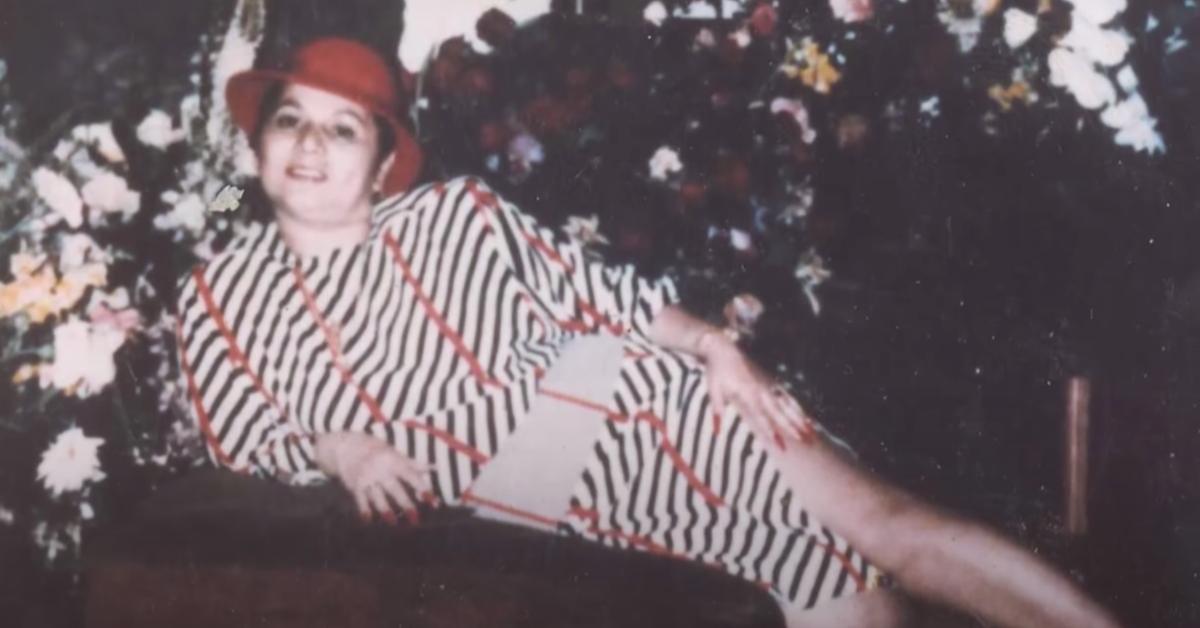Griselda Blanco, known as the "Cocaine Godmother," remains one of the most notorious figures in the history of drug trafficking. Her life and career have been the subject of numerous documentaries, books, and films, highlighting her significant influence on the cocaine trade during the 1970s and 1980s. Her story is not only a tale of crime but also a reflection of the broader issues surrounding drug cartels and organized crime.
Blanco's rise to power was marked by her ruthless tactics and strategic mind, which allowed her to build an empire that spanned continents. Her story is both fascinating and terrifying, showcasing the dark side of ambition and the lengths some individuals will go to achieve power and wealth.
In this article, we will delve into the life and legacy of Griselda Blanco, exploring her journey from a humble beginning in Colombia to becoming one of the most feared drug traffickers in history. We will examine her impact on the cocaine trade, her violent methods, and the eventual downfall that led to her death.
Read also:Unveiling The Inspiring Journey Of Melissa Oneil A Rising Star In Entertainment
Table of Contents
- Biography of Griselda Blanco
- Early Life and Background
- Rise to Power in the Cocaine Trade
- Operations of the Medellín Cartel
- Violent Methods and Tactics
- Law Enforcement Pursuit
- Legacy and Impact on the Drug Trade
- Depiction in Popular Culture
- Controversies Surrounding Griselda Blanco
- Conclusion and Final Thoughts
Biography of Griselda Blanco
Griselda Blanco was born on February 15, 1943, in Riosucio, Colombia. Her full name was Griselda García Blanco, and she became infamous as the "Cocaine Godmother" due to her central role in the cocaine trade during the 1970s and 1980s. Below is a summary of her key personal information:
| Full Name | Griselda García Blanco |
|---|---|
| Birthdate | February 15, 1943 |
| Place of Birth | Riosucio, Colombia |
| Date of Death | September 3, 2012 |
| Place of Death | Medellín, Colombia |
| Nickname | The Cocaine Godmother |
Early Life and Background
Griselda Blanco's early life was marked by poverty and hardship. Growing up in a small town in Colombia, she faced numerous challenges that shaped her character and ambitions. Her family struggled financially, and she learned to survive in a harsh environment. This upbringing instilled in her a strong sense of determination and resilience, qualities that would later define her career in the drug trade.
Childhood Struggles
Blanco's childhood was far from ideal. She was born into a poor family and often had to fend for herself at a young age. These struggles taught her the value of resourcefulness and adaptability, traits that would become crucial in her future endeavors. Her early exposure to crime and violence also played a significant role in shaping her worldview.
Rise to Power in the Cocaine Trade
Griselda Blanco's entry into the cocaine trade was a gradual process that began in the 1970s. She quickly rose through the ranks, using her intelligence and strategic thinking to establish a powerful network of drug traffickers. Her ability to navigate the complex world of organized crime set her apart from her peers.
Building an Empire
Blanco's rise to power was marked by her ability to build alliances and establish a strong presence in the drug trade. She worked closely with other key players in the industry, including members of the Medellín Cartel, to expand her operations. Her focus on quality and efficiency helped her gain a competitive edge in the market.
Operations of the Medellín Cartel
As a key figure in the Medellín Cartel, Griselda Blanco played a pivotal role in its operations. Her involvement in the cartel's activities was extensive, and she was instrumental in expanding its reach and influence. The cartel's operations were characterized by their sophisticated methods and ruthless tactics.
Read also:Jonathan Roumie The Versatile Actor And Director Redefining Hollywood
Key Strategies
- Establishing a network of distributors in the United States
- Utilizing innovative smuggling techniques
- Building alliances with corrupt officials
Violent Methods and Tactics
Griselda Blanco's reputation for violence was well-deserved. She employed a variety of brutal tactics to maintain control over her operations and eliminate rivals. Her willingness to use extreme measures set her apart from other drug traffickers and contributed to her notoriety.
Examples of Violence
Blanco's violent methods included assassinations, bombings, and kidnappings. She was known for ordering the deaths of numerous individuals, including law enforcement officers, rival traffickers, and even innocent civilians. Her actions earned her a reputation as one of the most feared figures in the drug trade.
Law Enforcement Pursuit
Throughout her career, Griselda Blanco was pursued by law enforcement agencies both in Colombia and the United States. Her ability to evade capture for many years was a testament to her cunning and resourcefulness. However, her luck eventually ran out, and she faced numerous legal challenges.
Arrest and Imprisonment
Blanco was arrested multiple times during her career, but she managed to avoid long-term imprisonment until the 1980s. In 1985, she was sentenced to 10 years in prison in the United States for drug trafficking charges. After serving her sentence, she was deported back to Colombia, where she continued her criminal activities.
Legacy and Impact on the Drug Trade
Griselda Blanco's legacy is one of both infamy and influence. Her contributions to the cocaine trade left a lasting impact on the industry, and her story continues to captivate audiences around the world. Her life serves as a cautionary tale about the dangers of ambition and the destructive nature of organized crime.
Influence on Future Generations
Blanco's influence can still be seen in the drug trade today. Her innovative strategies and ruthless tactics have been studied and emulated by other traffickers, contributing to the evolution of the industry. Her story also highlights the importance of addressing the root causes of drug-related crime and violence.
Depiction in Popular Culture
Griselda Blanco's life has been the subject of numerous films, documentaries, and books, showcasing her impact on popular culture. Her story continues to captivate audiences, providing a glimpse into the world of drug trafficking and organized crime. These portrayals often emphasize her intelligence, ruthlessness, and resilience.
Notable Adaptations
- "Queen of the South" - A television series loosely based on her life
- "El Cartel: La guerra contra Pablo Escobar" - A documentary exploring her involvement in the Medellín Cartel
- "The Godmother: Griselda Blanco" - A book detailing her life and career
Controversies Surrounding Griselda Blanco
Griselda Blanco's life was filled with controversy, both during her career and after her death. Her actions sparked widespread debate about the nature of organized crime and the effectiveness of law enforcement efforts to combat it. Her story raises important questions about the societal factors that contribute to the rise of drug traffickers.
Public Perception
Blanco's legacy is complex, with some viewing her as a criminal mastermind and others seeing her as a victim of circumstance. Her story highlights the challenges of understanding the motivations and actions of individuals involved in organized crime. It also underscores the need for comprehensive strategies to address the root causes of drug-related violence.
Conclusion and Final Thoughts
Griselda Blanco's life and career provide a fascinating glimpse into the world of drug trafficking and organized crime. Her rise to power, violent methods, and eventual downfall offer valuable lessons about the dangers of ambition and the importance of addressing the root causes of crime. Her story continues to captivate audiences and inspire discussions about the complex issues surrounding the drug trade.
We encourage readers to share their thoughts and insights in the comments section below. Additionally, feel free to explore other articles on our site for more in-depth coverage of related topics. Together, we can continue to learn and grow from the stories of individuals like Griselda Blanco.
References:
- United States Department of Justice
- Colombian National Police
- Documentaries and publications on organized crime


